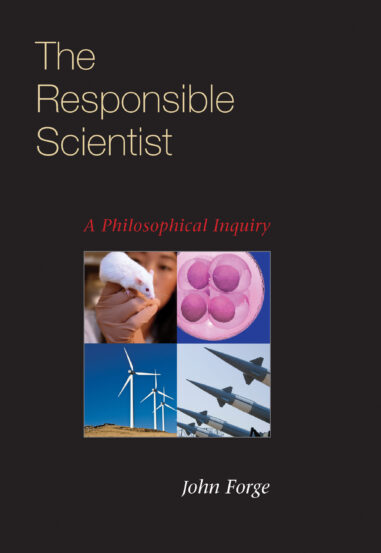When Fat Boy, the first atomic bomb was detonated at Los Alamos, New Mexico in 1945, moral responsibility in science was forever thrust into the forefront of philosophical debate. The culmination of the famed Manhattan Project, which employed many of the world’s best scientific minds, was a singular event that signaled a new age of science for power and profit and the monumental responsibility that these actions entailed.Today, the drive for technological advances in areas such as pharmaceuticals, biosciences, communications, and the defense industry channels the vast majority of scientific endeavor into applied research. In The Responsible Scientist, John Forge examines the challenges of social, moral, and legal responsibility faced by today’s scientists. Focusing on moral responsibility, Forge argues that scientists have a responsibility not to do work that has harmful outcomes and that they are encouraged to do work that prevents harm. Scientists also have a backward-looking responsibility, whereby they must prevent wrongful outcomes and omissions that they are in a position to foresee.Forge presents a broad overview of many areas of scientific endeavor, citing the responsibility of corporations, employees, and groups of scientists as judged by the values of science and society’s appraisals of actions and outcomes. He maintains that ultimate responsibility lies in the hands of the individual-the responsible scientist-who must exhibit the diligence and foresight to anticipate the use and abuse of his or her work.


